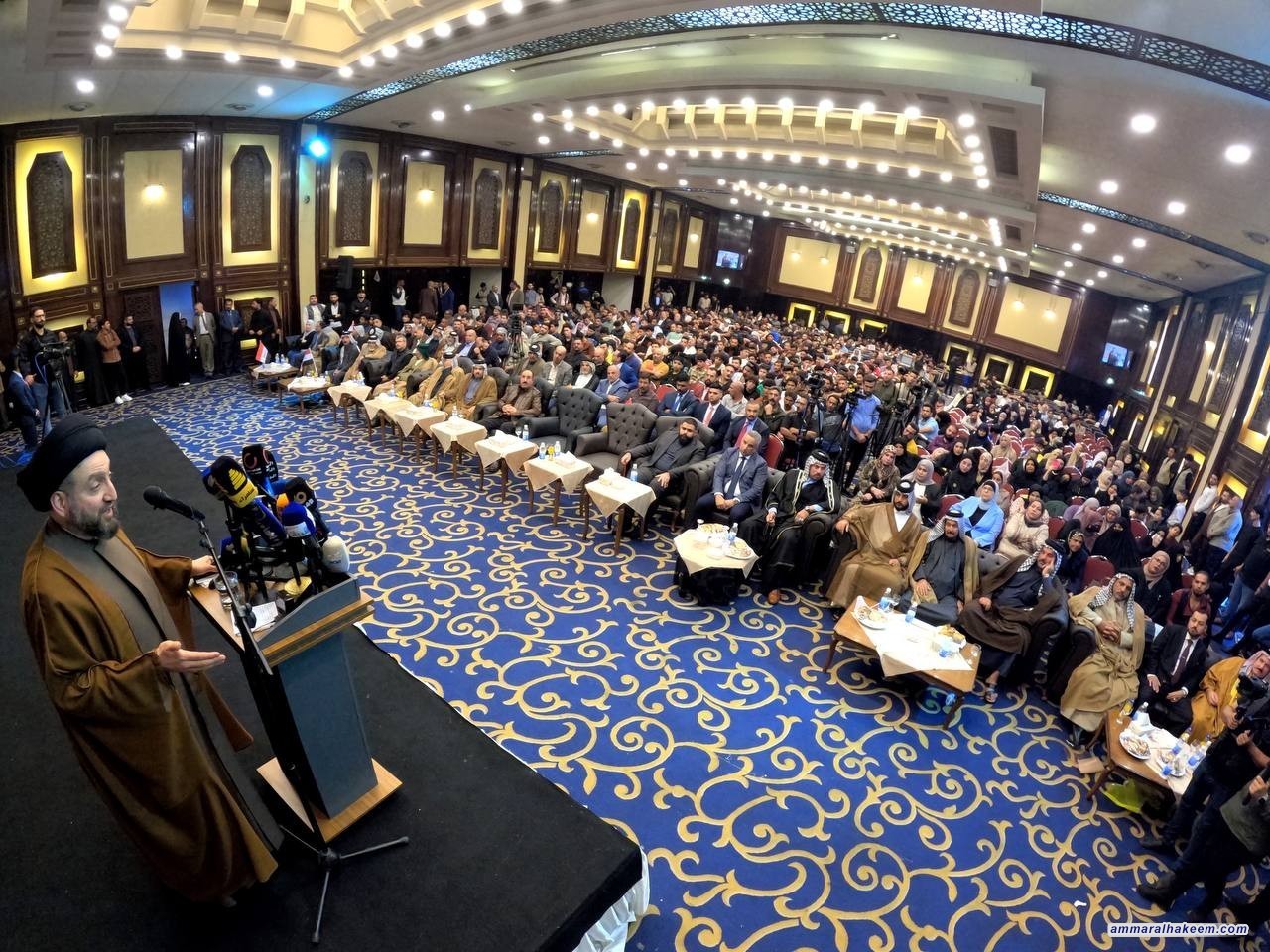Sayyid Al-Hakeem warns against public elections’ participation denial, unbalance results, jeopardize achieved stability
In the electoral conference of Al-Hikma Movement, one of the pillars of the National State Powers’ Alliance, Sayyid Ammar Al-Hakeem, Head of Al-Hikma National Movement, emphasized the importance of the ideological project and preparation for the appearance of the Imam Mahdi (may Allah hasten his honorable reappearance). His Eminence reiterated his condemnation of the double standards followed by Western countries in dealing with the Palestinian issue, calling for an end to aggression, the entry of aid, and reconstruction.
H.E. pointed out the obstacles overcome by Iraq through the resilience of its sons, the positions of the supreme religious authority, and the political and social leadership, affirming that Iraq paid the price for this stability with its money, opportunities, and the blood of its sons.
H.E. affirmed that the challenges faced by Iraq, whether security, political, or social, have made the most important challenge today the economic and service challenge, diversifying sources of income, and moving away from the rentier state. H.E. emphasized the necessity of revitalizing the industrial, agricultural, investment, tourism, and technology sectors, highlighting the country's need for a strategic vision, clear policies, effective plans, scientific projects, and competent work teams—all of which constitute the necessary integrated vision for economic and service development.
H.E. also emphasized Iraq’s need for a balanced policy based on the interests of Iraq and its people, calling for an integrative relationship between provinces and the adoption of job opportunities for youth as a criterion for prioritizing projects.
H.E. called for combating corruption according to clear visions and plans, emphasizing that transparency, adopting modern technology, and reducing bureaucracy are important means to combat corruption.
H.E. also called for broad, effective, and aware participation in elections, stating that participation is a right for every individual, and not participating is a right for every voter. H.E. warned against calls to discourage participation and prevent people from participating, as they would create unbalanced results in representing social components, especially in provinces with diverse representational components. H.E. held those who called to prevent people from participating responsible for the imbalance in representational components and the state of instability that would result from it.











